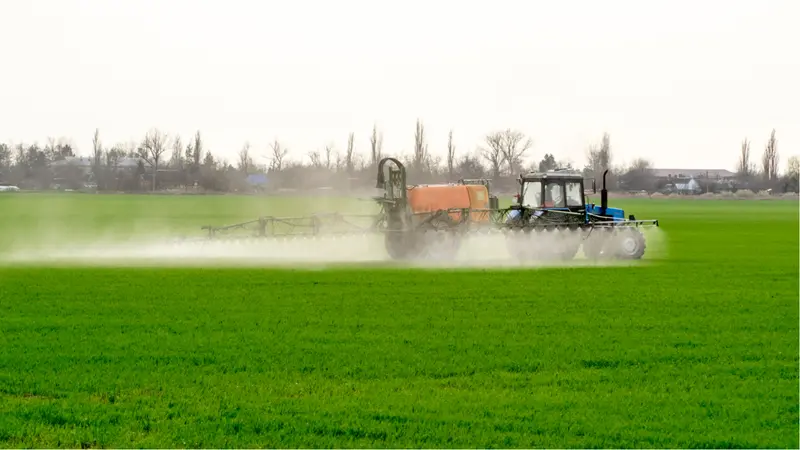

Planet and People Connection

Planet and People Connection
Glyphosate and Your Health
The chemical compound glyphosate, used in herbicides, is more commonly identifiable by its trade name, Roundup, patented in the 1970s by the agrochemical corporation Monsanto, which is now owned by the pharmaceutical company Bayer.
Production and use of the now generic product has skyrocketed. Currently, some 300 million pounds is applied annually, mainly to farm fields, but also on lawns, golf courses, parks, and even some playgrounds in the US.
Glyphosate was long considered safe for use on foods consumed by humans as it targets an enzyme found in plants, not animals. But residues from glyphosate and its metabolites can seep into soil, water, food made with treated crops, and meat and dairy from livestock that are fed those crops.
Increasingly, research shows that glyphosate has significant harmful effects on human health, including cancer. Exposure occurs to those farm workers who apply it, those who eat foods contaminated by it, and those who drink or bathe in contaminated water.
Both the Agency for Toxic Substances and Disease Registry, which is part of the US Department of Health and Human Services, and the International Agency for Research on Cancer have linked glyphosate with cancer and other ailments.
Yet certain public agencies, some with strong ties to the agrochemical industry, including the Environmental Protection Agency (EPA), continue to deny that glyphosate-based herbicides (GBHs) causes health problems, claiming that at the typical level of human exposure it’s not harmful.
What has emerged appears to be a discrepancy between research funded by the industry and the larger body of evidence—which links glyphosate exposure with cancer and other diseases—that is free of industry ties.
In addition to its links with cancer, other harmful effects from glyphosate exposure include: interference with the gut microbiome; disruption of the body’s natural detox capacities; immune dysfunction; disruption of endocrine systems; nutrient deficiencies; oxidative stress; reproductive harm.
While glyphosate is ubiquitous in the environment, steps can be taken to minimize exposure. Perhaps the most important is to eat certified organic food, which is free of herbicides. Use of Roundup and other GBHs in gardens and lawns should be avoided. Parents should inquire if GBHs are being used on their children’s school grounds.
There are also ways to improve your innate detox capacity, including eating a nutrient-dense anti-inflammatory diet, managing stress, getting sufficient sleep and exercise, and reducing exposure to other environmental toxins such as plastics with BPA. Consider installing a water purifier and an air purifier.
REFERENCES
Chris Kresser. (2021, August 3). RHR: The harmful effects of glyphosate—and how to reduce them. https://chriskresser.com/the-harmful-effects-of-glyphosate-and-how-to-reduce-them/?
Chris Kresser. (2019, March 22). The impact glyphosate can have on your health. https://chriskresser.com/the-impact-glyphosate-can-have-on-your-health/


 By
By







